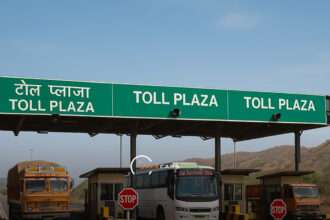At the time of addressing the 63rd ACMA annual session in New Delhi, the Minister of Road Transport and Highways in India commented “We don’t want to make six bags rule for card mandatory”. He further mentioned that it’s upon the company’s policy to either provide a 6-Airbag rule or not.
Lots of companies already doing this for a long time and ruling in the Indian market.
As per the sources, the statement of Nitin Gadkari delivers a positive message to the automobile industry in India. According to him, the availability of Star Rating and Bharat NCAP is sufficient to analyze the performance and safety features in automobiles.
Now, this comment comes ahead of the government’s implementation of the 6-airbag safety norm which is going to conclude in October 2023. The purpose of this safety norm is to make Indian automobiles one step forward in terms of safety norms.
On Wednesday, Nitin Gadkari addressed the 63rd ACMA Annual session held in New Delhi. At this event, at the time of addressing and sharing the stage Gadkari said “We don’t want to make six airbags rule for cars mandatory”. Furthermore, he also mentioned that there is no need to worry about this rule (6-airbags) because car owners are comparatively more aware of safety norms. So, if the company doesn’t follow the required safety norms then it will affect its sales in the Indian automobile industry.

That was a clear statement by the Minister of Road Transport and Highways in India Nitin Gadkari. He also added to his statement that because of the Star Rating and Bharat NCAP, it’s sufficient and delivers a good message to the automobile industry in India.
Well, this statement gets controversial because in a statement last year, the Ministry of Road Transport and Highways (MoRTH), announced some new safety norms that help to achieve the targets and amendments in the current Central Motor Vehicle Rules (CMVR), 1989.
In the amendment, it was proposed that all the types of vehicles which are manufactured on and after 1st April 2021, should attain dedicated airbags for both front seats. This decision was taken by the MoRTH after understanding the need and importance of airbags in vehicles. Airbag plays a crucial role and protects the driver and other passengers from severe injuries. The government has set a deadline for all the car manufacturers in India to ensure airbags in both the front seats. The deadline given by the government to all the vehicle manufacturers to place the amendments till 1st October 2022.
As per the tweet posted last year by MoRTH minister Nitin Gadkari, the deadline was postponed from 1 October 2022 to 1 October 2023. Later, after considering the global market supply chain and its effect on macroeconomic terms in the nation, it was decided by the government to mandate the 6-airbag availability compulsory in passe cars of the M-1 category. This rule was set to be implemented by all the vehicle manufacturers before 1st October 2023.
The government of India and MoRTH, don’t mention any further date yet this means that 1 October 2023 is still the final date for vehicle manufacturers to amend and place 6-airbags in passenger cars.
The statement of Nitin Gadkari targets to define that Indian car owner/vehicle owner is now educated and knows about the safety norms. He also mentioned how government portal like Star Rating and Bharat NCAP plays a role in providing the right analytics about the vehicle. The statement of Nitin Gadkari defines that we’re aware of the safety norms and requirements which are needed in a vehicle. So, if a company don’t provide the basic safety norms required in India then people avoid those brands.
If a company fails to provide safety features then it automatically affects its sales in the Indian market. So, there is no need to place any rule to place 6 airbags in the government. We can easily get every specified knowledge about the vehicle and if it doesn’t have the required feature then people generally avoid it. Nitin Gadkari got huge appreciation after this statement at the event and the event delightfully concluded on the same day.




